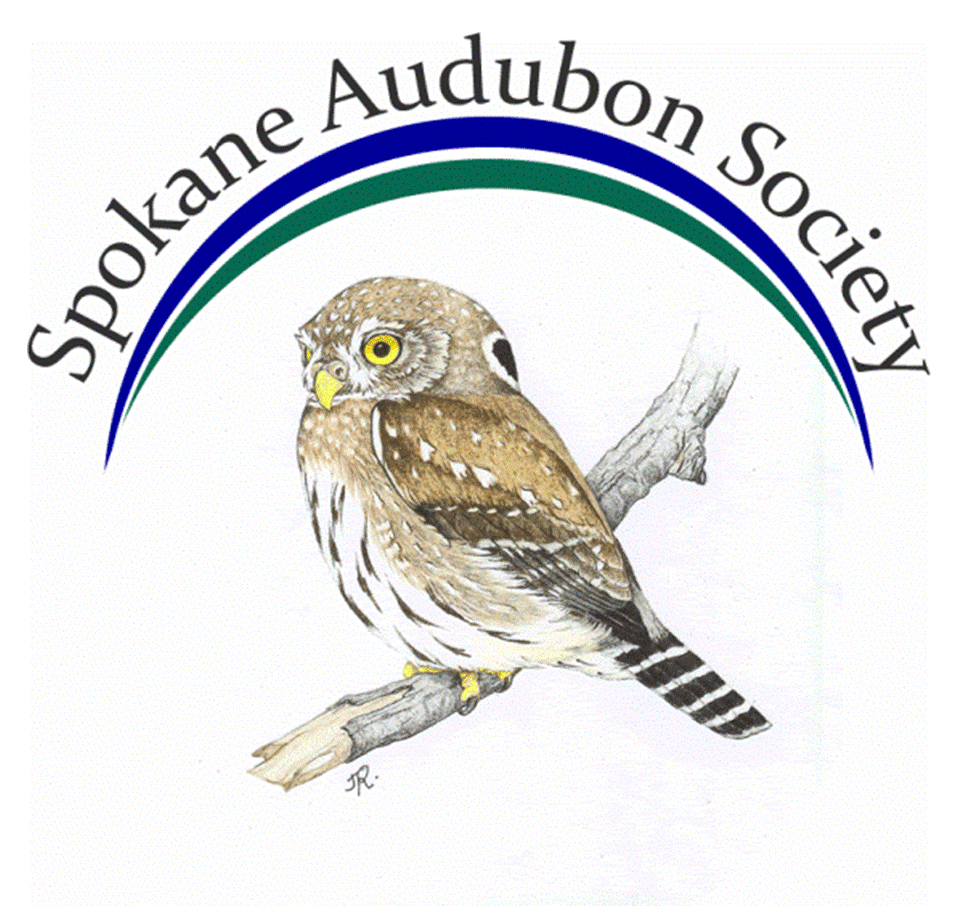Wanda Peters
Wanda Peters
by Madonna Luers
One of Wanda Peters’ favorite birding experiences is sitting very quietly and still with pre-school children in a thicket and watching birds come close and fill them with wonder and awe.
“I think the way to have more young people interested in birding is to provide them fun opportunities to experience that joy and beauty,” she said. “And we need patient adults willing to engage with them on their level and in their ways.”
Wanda’s patient spirit -- and her extensive background -- are why she is Spokane Audubon Society’s Education Chair, having taken the reins from our retired teachers Lindell Haggin and Joyce Alonso.
With a degree in Environmental Education/Natural History and Master’s studies in Adult Environmental Education from Prescott College in Arizona, Wanda’s work has centered around leading groups and teaching people outdoors in a variety of places and for a number of entities. She’s been an interpretive naturalist for the National Park Service and Washington State Parks, and an Environmental Education consultant for Washington Forest Protection Association. She ran overnight outdoor school programs in Washington and Oregon, directed an Audubon Nature Center in Wyoming, and led outdoor nature play classes for pre-schoolers through the Cedar River Watershed Visitor Center near North Bend.
Wanda joined the chapter to “connect with like-minded people” when she moved to Nine Mile Falls in 2019 with her family and began substitute teaching in local school districts. Although her late partner was a birder, Wanda says her kids just “tolerate” her passion for birding. “My son-in-law did a great imitation of a birder when I was visiting them,” she said. “He would hear birds I couldn't hear and point to them, and he did put up the hummingbird feeder I gave them, so maybe there's hope!”
Born in 1957 in Allentown, Pennsylvania, Wanda has been interested in nature as long as she can remember, growing up with parents who fed and watched backyard birds. She had a professor at Prescott College with “a contagious passion for birds,” and working for Audubon in Wyoming really launched her into birds and birding.
“I pretty much bird wherever I am,” she said, “I’m easily entertained by ravens and robins, but also plants, insects, tracks, galls, clouds in the sky, just being outside in the stillness of early morning or evening times.”
Some of her most memorable birding was watching and listening to the thousands of Sandhill cranes on Nebraska’s Platte River in the Spring, and witnessing college students have their “Aha moments” birding in Arizona.
If she had to pick a favorite bird it would be the American Dipper. “I always just loved the name Water Ouzel before they changed it to Dipper,” she said, “but I’m also always mesmerized watching them on the rocks by a stream, then watching them dive in. It kind of astounds me every time.”
Wanda’s tips for new birdwatchers is to be patient with themselves and take time to observe, notice and enjoy the beauty of birds and their habitat. She believes young people in particular need to be given opportunities to foster relationships with birding adults and to be able to use “good” binoculars, which is why she was glad to see the chapter invest in binoculars for field trip leaders to lend and has volunteered to manage their use.
Wanda’s “Think Like A Bird” family field trip along the Spokane River in late February and her Beginning Birder Class at Turnbull National Wildlife Refuge last month were big hits with participants, some who were inspired to join the chapter after the experience.
She believes the most important issues for the future of birds and birding is loss of healthy habitats and the human “disconnect” from natural processes and systems.
“I am excited to be involved in the future educational efforts for Spokane Audubon,” she said. “I want to discover ways to engage people with birds, birdwatching and this place we live. “My vision is that wildlife and people have healthy places to live, and that people feel connected to natural places and work together to preserve and restore habitats, whether it be in their backyards or neighborhood or cities or wildlife refuges or wilderness.”







